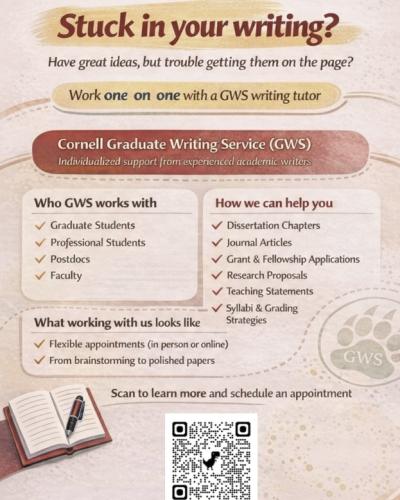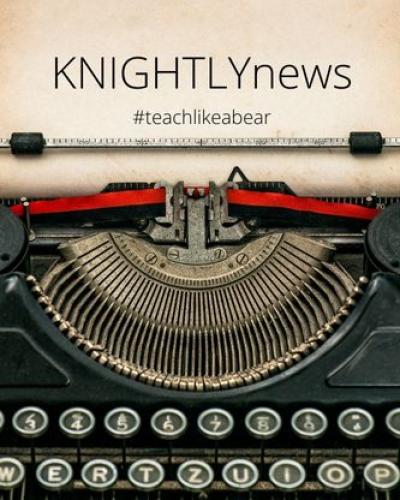This fall, students will research and write about topics related to health and wellness in these First-Year Writing Seminars:
ENGLISH 1140 | Writing Medicine: Stories of Illness and Healing (Susanna Cupido, Rocío Corral García, Jiachen Wang, Charity Young, Sarah Iqbal, and Jehan Roberson)
What does it mean to be healthy? How do we describe our pain? Who becomes a physician? The practice of medicine isn’t confined to scientific knowledge: it raises difficult questions about culture, identity, and bodies, and the stories we tell about all of these. This course will focus on works of literature and media to think about how medical care changes across time and place, and to explore images and narratives that shape our expectations about illness and health. Short writing assignments and longer essays will develop your critical thinking, strengthen your writing skills, and build your awareness of the complex cultural landscape of medical care.
ENGLISH 1168 | Cultural Studies: Comics and Graphic Medicine (Greg Londe)
How does the medium of comic books allow authors to craft new stories about health and illness? Can graphic memoirs and novels help refine modes of clinical dialogue between patients and caregivers? In this seminar we’ll study recent comics that help to illuminate the lived contours of affliction, recovery, chronic pain, and mental health. We’ll learn how artists challenge the dominant visual vocabularies by which ability and disability tend to be represented. Through close examination of comics from the distant past to the ongoing pandemic, this class will help us discover how to write about and find words for our pains and joys, as well as how we can draw together around experiences of physical change and challenge.
HUMAN ECOLOGY 1150 | Why People Change: Gendered Journeys--Inequality Across the Lifespan (Kathleen McCormick)
Popular messages emblazoned on t-shirts and stickers herald the idea that “Girls Can Do It All!”. Although these messages can be empowering, they often overlook systemic inequities that can accumulate across the lifespan and affect girls’ and women’s opportunities and sense of agency. This course will examine gender across the lifespan, breaking down how social, political, and cultural factors affect women’s physical and mental health. Students will read scientific papers, creative works, and news articles. We will interrogate how marginalized genders intersect with class and race across the lifespan through writing assignments that include reflections, persuasive essays, research papers, and science communication writing.
HUMAN ECOLOGY 1152 | Exploring Biomedical Textiles in Health and Sustainability (Mohsen Alishahi)
Textiles are ubiquitous in modern life and have implications for both health and sustainability. Textile applications to healthcare can span from conventional textiles such as sheets, gowns, and face masks to more complicated ones such as wound dressings, textiles to control pain, and textiles implanted inside the body. Biomedical textiles also present sustainability challenges such as material sourcing, waste management, and antimicrobial resistance. Through engaging discussions, reading scientific articles and news, and practical writing assignments on each specific topic, students will learn to communicate effectively about complex scientific concepts of the fabrication and application of biomedical textiles. By taking this course, students will gain insight into writing op-eds, posters, basics of scientific articles, as well as crafting proposals in the field of medical textiles.
SCIENCE & TECHNOLOGY STUDIES 1126 | The "Body" in Medicine and Healing (Ashawari Chaudhuri)
Experiences of illness and disease are universal, yet different medical traditions have vastly different conceptions of what a body is. How can something so intimate and tangible like the body be understood so contrastingly in medicine across the world? With examples from classical Greek and ancient Chinese medicine to contemporary practices in biomedicine, Ayurveda and others, the course questions everyday, taken-for-granted assumptions, like the distinction between mind and the body, or what counts as a healthy body. Students will be able to read and identify other people’s arguments and how they support them, and eventually develop their own arguments and use evidence to build them. Writing assignments will include illness diaries, essays, research paper, and an art project
WRITING 1370 | Elements of Academic Writing: The Long Game—Choices for a Healthy Life (Jessica Sands)
Living longer without living better doesn’t make much sense. Maybe you’ve been interested in health and wellness for years, or you have a newfound curiosity, this writing seminar focuses on practices to help us live healthier and longer lives. Inspired by medical authors like Dr. Peter Attia, and Dr. David Frawley, we will reflect upon our personal health choices, especially, nutrition, sleep, mental health, and movement to discover how we can promote good health. Students should expect to practice reading, writing, discussion about medical materials as well as their own personal thoughts and experiences. By collaborating with peers to pose questions, examine ideas, and share drafts, students develop the analytic and argumentative skills fundamental to interdisciplinary reading, research, and writing. In addition to scientific and creative writing, this course uses podcasts as multimodal text material.Join this course to study the essential elements of academic writing and to learn flexible and sustainable strategies for producing interesting, clear, and precise academic prose that can address a variety of audiences and meet diverse rhetorical aims. Writing 1370/80 is a smaller FWS (capped at 12 students) that spends more time navigating the steps in the writing process in order to respond to each student’s individual needs and build confidence and reflective practice. As in all FWSs, students practice higher-order thinking, close reading, and analyzing evidence. They also complete 4-5 major writing assignments. This course places greater emphasis on in-class writing, one-on-one conferences with the teacher, peer workshopping, discussion, and learning to talk about how different types of writing work. Students will deeply engage diverse course materials (journalism, scholarly articles, podcasts, films, etc.) on topics like art, literature, and relevant social issues to explore ideas about a text, write for specific audiences, and develop creativity, style and voice.





